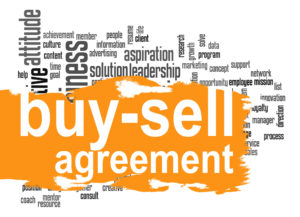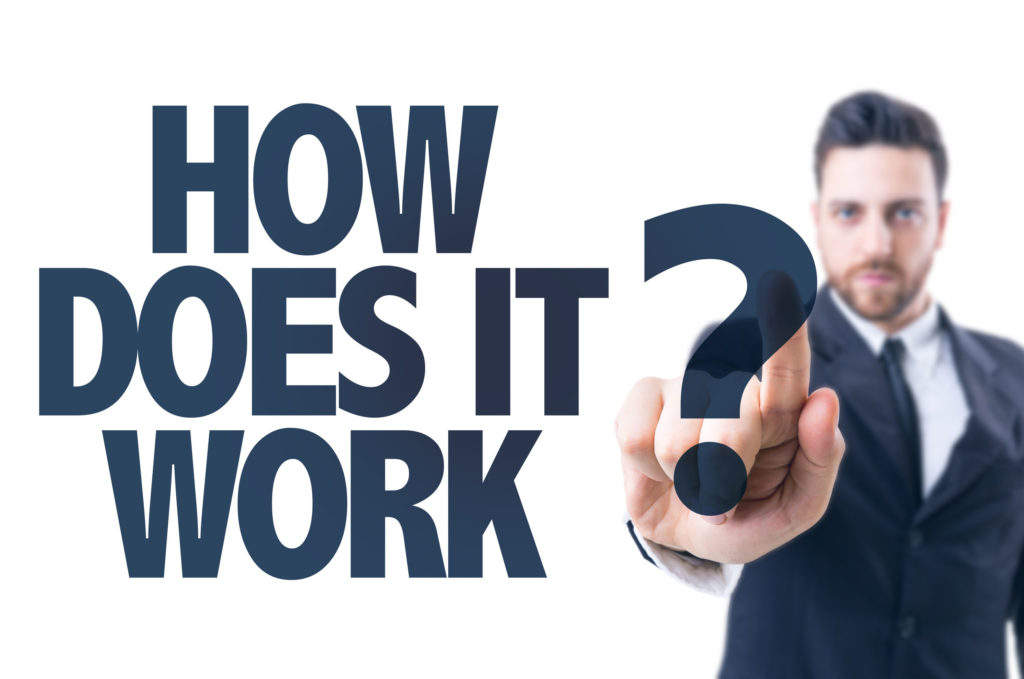Disability Buy-Out
There are numerous types of disability insurance. If you own a business with more than one owner, having disability buy-out insurance is one that you shouldn’t go without.
Personal disability insurance covers your personal income if a sickness or injury prevents you from doing your job. You see variations on this type of coverage (group vs. individual, primary vs. supplemental, etc.), but they all have the same objective: to cover your personal expenses should you become disabled.
Business disability insurance is another coverage that can be purchased by the owners of a company or business. Meant specifically to protect the business, these plans are payable to the company if an owner or top employee becomes disabled. These policies are marketed as business overhead protection (BOE), key person plans, and disability buy/sell plans.
While all these plans are important, a disability buy-out plan can protect the business and its owners from a very difficult situation.
For this article, the terms disability buy-out and disability buy/sell will be used interchangeably.
What Is a Buy/sell Agreement?
 A buy/sell agreement or arrangement is a contract that places specific responsibilities on the parties to the agreement. Often, those requirements pertain to business succession. Buy/sell agreements typically have two parts, the legal document and the funding. A well-structured plan will have both in place from the beginning.
A buy/sell agreement or arrangement is a contract that places specific responsibilities on the parties to the agreement. Often, those requirements pertain to business succession. Buy/sell agreements typically have two parts, the legal document and the funding. A well-structured plan will have both in place from the beginning.
However, it is not uncommon to see a buy/sell arrangement that has nothing but funding, meaning that, should one of the business owners die, a life insurance death benefit would be payable to the business (in an entity buy/sell) or the surviving partners (cross-purchase), which can be used to purchase the deceased business owner’s shares or interests. Without a legal requirement, the remaining owners are under no obligation to do so, creating a mess for the estate of the deceased.
The reverse situation can also be financially damaging. This is where the owners have the foresight to draw up and execute the agreement but never get around to the funding. The untimely death of an owner can force the business to sell assets and/or raise additional capital to buy-out their shares or interests.
Missing the Mark
By this time, you might have noticed I keep talking about the death of a business owner and how a properly structured buy/sell agreement fully funded with life insurance can help financially mitigate an otherwise difficult and unfortunate situation. That is because most of these plans are set up exactly like that. In the eyes of most business owners, they seem to think:
Legal document + life insurance = buy/sell agreement
Done.
But if you’re reading this website, you’re likely knowledgeable enough to infer that a disability can be as damaging if not more damaging than death in business and personal situations. Yet, this often gets overlooked in a typical buy/sell agreement.
I see it all the time. Besides writing disability insurance, we also write a lot of term and estate planning cases (these solutions help protect those with high incomes, as well). The best examples are banks. They often require someone getting a loan to purchase life insurance if they pass away prior to fulfilling their obligations. No mention of disability, which leaves the lender open to huge liability.
The same thing occurs in divorce proceedings. A large alimony or child support order is issued, and the main requirement for the individual making the payments is to purchase a new life insurance policy or assign an existing one. There is no mention of what would happen should that ex-spouse/parent not be able to make those payments anymore due to sickness or injury.
Fixing the Problem
This issue can be solved simply: requiring or mandating that disability insurance be included in all these arrangements. From the business loan to the divorce example, having an individual disability insurance plan in place can help mitigate rather unfortunate circumstances (for both parties).
This article is meant specifically to address disability buy/sell or disability buy-out scenarios. That shouldn’t take away from the fact that this type of product can help in several risk-management scenarios.
How Does a Disability Buy-out Work?
As we covered earlier, a buy/sell agreement comprises a legal contract and a funding component. These two items comprise a complete agreement.
comprise a complete agreement.
Disability buy-out or disability buy/sell is part of the funding aspect of the agreement.
Should a covered person (often a significant shareholder or partner) be unable to continue their company duties due to sickness or injury, a disability buy-out plan will cover the purchase of the insured’s business interests by the company or by the remaining owners.
This disability insurance typically has several caveats and restrictions.
For one, it will require the insured to be totally disabled. Residual and/or partial disability benefits are not available for disability buy-out or disability buy/sell plans.
Second, the period of total disability must be extensive. The typical individual disability insurance policy has an elimination period of 90-365 days, depending on the owner’s financial situation. A disability buy-out policy will have a minimum of a 365-day elimination period, often extending to 540 or even 730 days.
The one to two year elimination periods are important for a few reasons. It eliminates insureds from going on claim for a relatively minor injury or sickness. Second, in a thriving business, most owners don’t want to be bought out. A long elimination period can help mitigate both situations.
For most disability buy-out or buy/sell plans, the structure is relatively straightforward. Should an owner become unable to continue in their role within the company for an extended time, the policy will allow the remaining owners/partners to buy-out the disabled partner using the funds from the disability buy-out policy.
What Types of Plans Are Available?
Disability buy-out plans normally come in two formats: lump sum or monthly.
In a lump sum plan, once the elimination period is satisfied, a lump sum will be paid to the company or owners (depending on the policy structure).
Monthly plans will pay a monthly payment to the business if the owner/partner remains disabled.
As you might expect, monthly payouts are typically less expensive than lump sum payouts, assuming the same coverage amounts.
Why Buy a Disability Buy-out Policy?
Most business owners don’t have a succession plan. For those that do, having a disability buy-out plan is critical. Every buy/sell arrangement focuses on the agreement and life insurance. Not having the same level of coverage for a potential disability is short-sighted and a major misstep for the “funding” portion of the plan.
Purchasing one of these plans is straightforward and necessary. A business valuation, tax returns, and medical exam are normally all that is necessary to secure this imperative coverage.
Without it, your succession plan may fall short of its expectations.
Why Use Us
We provide expert, unbiased advice to professionals and businesses. Providing you with ideal direction and support is our priority. If you’re looking for funding for your company’s succession plan or buy/sell agreement, please contact us.
You can call 888-636-2310 or simply fill out the quote form on the left.
